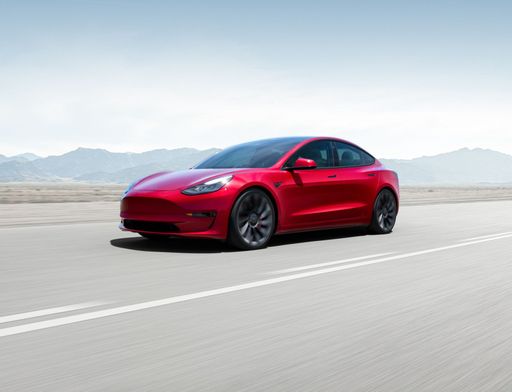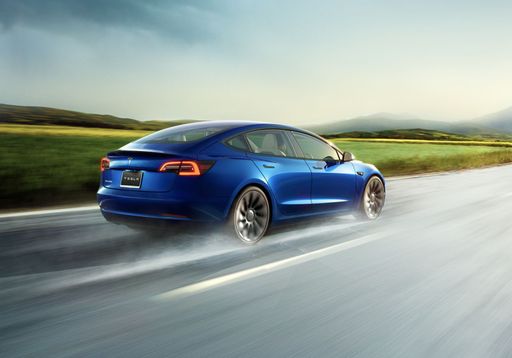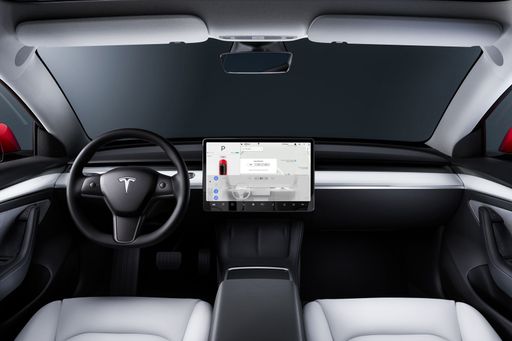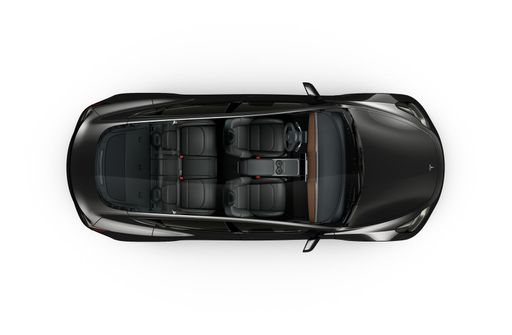Tesla Model 3 vs Porsche Cayman - Differences and prices compared
Compare performance (460 HP vs 500 HP), boot space and price (31700 £ vs 136000 £ ) at a glance. Find out which car is the better choice for you – Tesla Model 3 or Porsche Cayman?
Costs and Efficiency:
Looking at overall running costs, both models reveal some interesting differences in everyday economy.
Tesla Model 3 has a convincingly advantage in terms of price – it starts at 31700 £ , while the Porsche Cayman costs 136000 £ . That’s a price difference of around 104323 £.
Engine and Performance:
Power, torque and acceleration are the classic benchmarks for car enthusiasts – and here, some clear differences start to show.
When it comes to engine power, the Porsche Cayman has a minimal edge – offering 500 HP compared to 460 HP. That’s roughly 40 HP more horsepower.
In acceleration from 0 to 100 km/h, the Tesla Model 3 is minimal quicker – completing the sprint in 3.10 s, while the Porsche Cayman takes 3.40 s. That’s about 0.30 s faster.
In terms of top speed, the Porsche Cayman performs to a small extent better – reaching 315 km/h, while the Tesla Model 3 tops out at 262 km/h. The difference is around 53 km/h.
There’s also a difference in torque: Tesla Model 3 pulls noticeable stronger with 660 Nm compared to 450 Nm. That’s about 210 Nm difference.
Space and Everyday Use:
Cabin size, boot volume and payload all play a role in everyday practicality. Here, comfort and flexibility make the difference.
Seats: Tesla Model 3 offers decisively more seating capacity – 5 vs 2.
In curb weight, Porsche Cayman is a bit lighter – 1490 kg compared to 1772 kg. The difference is around 282 kg.
In terms of boot space, the Tesla Model 3 offers decisively more room – 594 L compared to 184 L. That’s a difference of about 410 L.
When it comes to payload, Tesla Model 3 distinct takes the win – 377 kg compared to 281 kg. That’s a difference of about 96 kg.
Who wins the race in the data check?
The Tesla Model 3 is far ahead overall in the objective data comparison.
This result only shows which model scores more points on paper – not which of the two cars feels right for you.
Costs and Consumption
View detailed analysis
Engine and Performance
View detailed analysis
Dimensions and Body
View detailed analysis

Tesla Model 3
Tesla Model 3
The Tesla Model 3 slices through daily commuting with a silent, confident shove that makes petrolheads reassess their life choices, while its minimalist cabin feels more like a slick gadget gallery than a traditional car interior. For buyers after a fuss-free, tech-forward electric with plenty of grin factor and low running drama, it’s hard to beat—just don't be surprised when the car updates itself overnight.
details



Porsche Cayman
The Porsche Cayman stands out as a quintessential sports car, blending sleek design with dynamic handling. Its mid-engine layout provides an excellent balance and sharp agility that driving enthusiasts crave. Inside, the Cayman offers a refined and driver-focused interior, ensuring that every journey is an exhilarating experience.
detailsCosts and Consumption |
|
|---|---|
|
Price
31700 - 50100 £
|
Price
136000 £
|
|
Consumption L/100km
-
|
Consumption L/100km
13 L
|
|
Consumption kWh/100km
13 - 16.7 kWh
|
Consumption kWh/100km
-
|
|
Electric Range
534 - 750 km
|
Electric Range
-
|
|
Battery Capacity
83 kWh
|
Battery Capacity
-
|
|
co2
0 g/km
|
co2
295 g/km
|
|
Fuel tank capacity
-
|
Fuel tank capacity
54 L
|
Dimensions and Body |
|
|---|---|
|
Body Type
Sedan
|
Body Type
Coupe
|
|
Seats
5
|
Seats
2
|
|
Doors
4
|
Doors
2
|
|
Curb weight
1772 - 1929 kg
|
Curb weight
1490 kg
|
|
Trunk capacity
594 L
|
Trunk capacity
184 L
|
|
Length
4724 mm
|
Length
4456 mm
|
|
Width
1850 mm
|
Width
1822 mm
|
|
Height
1431 mm
|
Height
1267 mm
|
|
Max trunk capacity
-
|
Max trunk capacity
272 L
|
|
Payload
303 - 377 kg
|
Payload
281 kg
|
Engine and Performance |
|
|---|---|
|
Engine Type
Electric
|
Engine Type
Petrol
|
|
Transmission
Automatic
|
Transmission
Automatic
|
|
Transmission Detail
Reduction Gearbox
|
Transmission Detail
Dual-Clutch Automatic
|
|
Drive Type
All-Wheel Drive, Rear-Wheel Drive
|
Drive Type
Rear-Wheel Drive
|
|
Power HP
283 - 460 HP
|
Power HP
500 HP
|
|
Acceleration 0-100km/h
3.1 - 6.2 s
|
Acceleration 0-100km/h
3.40 s
|
|
Max Speed
262 km/h
|
Max Speed
315 km/h
|
|
Torque
420 - 660 Nm
|
Torque
450 Nm
|
|
Number of Cylinders
-
|
Number of Cylinders
6
|
|
Power kW
208 - 338 kW
|
Power kW
368 kW
|
|
Engine capacity
-
|
Engine capacity
3996 cm3
|
General |
|
|---|---|
|
Model Year
2025
|
Model Year
2021
|
|
CO2 Efficiency Class
A
|
CO2 Efficiency Class
G
|
|
Brand
Tesla
|
Brand
Porsche
|
Is the Tesla Model 3 offered with different drivetrains?
Available configurations include All-Wheel Drive or Rear-Wheel Drive.
